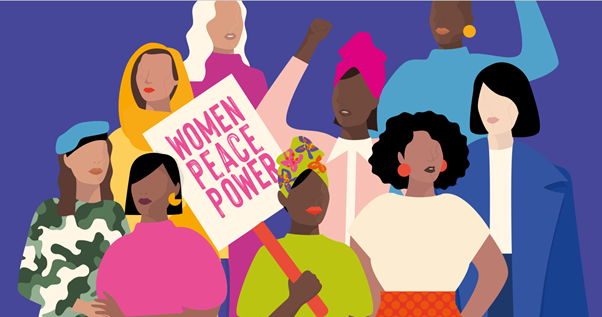SES Equality, Justice, Women Platform will adopt an editorial policy that will prioritize the “Women, Peace and Security” agenda in the upcoming period.
Our platform aims to address the issue of “security”, which is predominantly left to the field of politics, with the perspective of women and oppressed groups, and to embrace the transformative role of media in raising the voice of peace from civil society.

SES Equality, Justice, Women Platform will adopt an editorial policy that will prioritize the “Women, Peace and Security” agenda in the upcoming period.
Together with our new project to be carried out in collaboration with the Swedish-based non-governmental organization Operation 1325, our platform aims to address the issue of “security”, which has been predominantly left to the field of politics, with the perspective of women and oppressed groups, and to act as an intermediary in raising the voice of peace from civil society and the media.
With this new editorial approach, we aim to produce various content on our Platform including translations, articles, videos and podcasts. We hope to contribute to the strengthening of the role of women as peacemakers and to address wars and conflicts in our country and in the world, especially the Kurdish issue in Turkey, from a women’s perspective and in a way that will bring peace building to the agenda.
The gender dimension of conflict resolution
Our project will also draw attention to the United Nations’ Security Council Resolution 1325, namely the impact of armed conflicts on women and girls, the role of women in sustaining peace, and the gender dimensions of peace and conflict resolution processes.
One of the most important features of the 1325 resolution is that the women’s civil society organizations compelled the United Nations to recognize their role in the field of peace and security. The decision consists of four pillars: “prevention”, “participation”, “protection” and “relief and recovery.”
Participation: Calls for increased participation of women at all levels of decision-making, including in national, regional, and international institutions; in mechanisms for the prevention, management and resolution of conflict; in peace negotiations; in peace operations, as soldiers, police, and civilians; and as Special Representatives of the U.N. Secretary-General.
Protection: Calls specifically for the protection of women and girls from sexual and gender-based violence, including in emergency and humanitarian situations, such as in refugee camps.
Read more about protections against sexual and gender-based violence
Prevention: Calls for improving intervention strategies in the prevention of violence against women, including by prosecuting those responsible for violations of international law; strengthening women’s rights under national law; and supporting local women’s peace initiatives and conflict resolution processes.
Relief and recovery: Calls for advancement of relief and recovery measures to address international crises through a gendered lens, including by respecting the civilian and humanitarian nature of refugee camps, and considering the needs of women and girls in the design of refugee camps and settlements.
The discussion of this resolution, which aims to ensure greater representation of women at all decision-making levels, in national, regional and international institutions and mechanisms related to the prevention, management and resolution of conflicts, will thus be heard more in the media.

